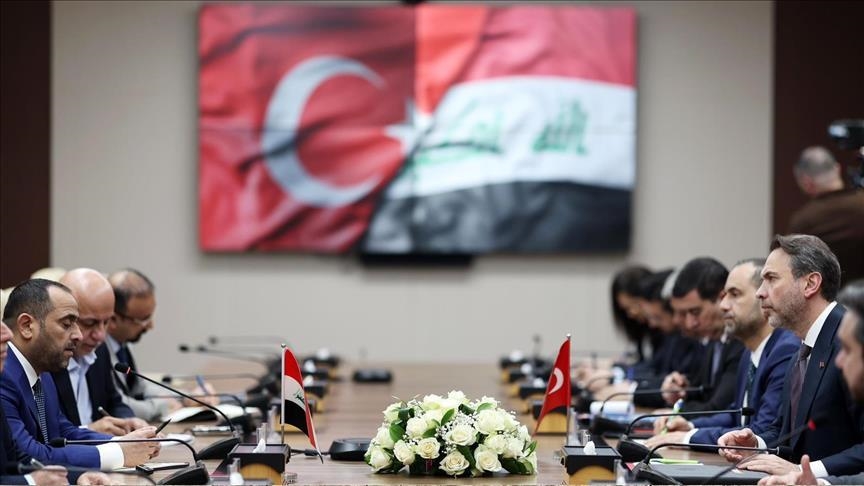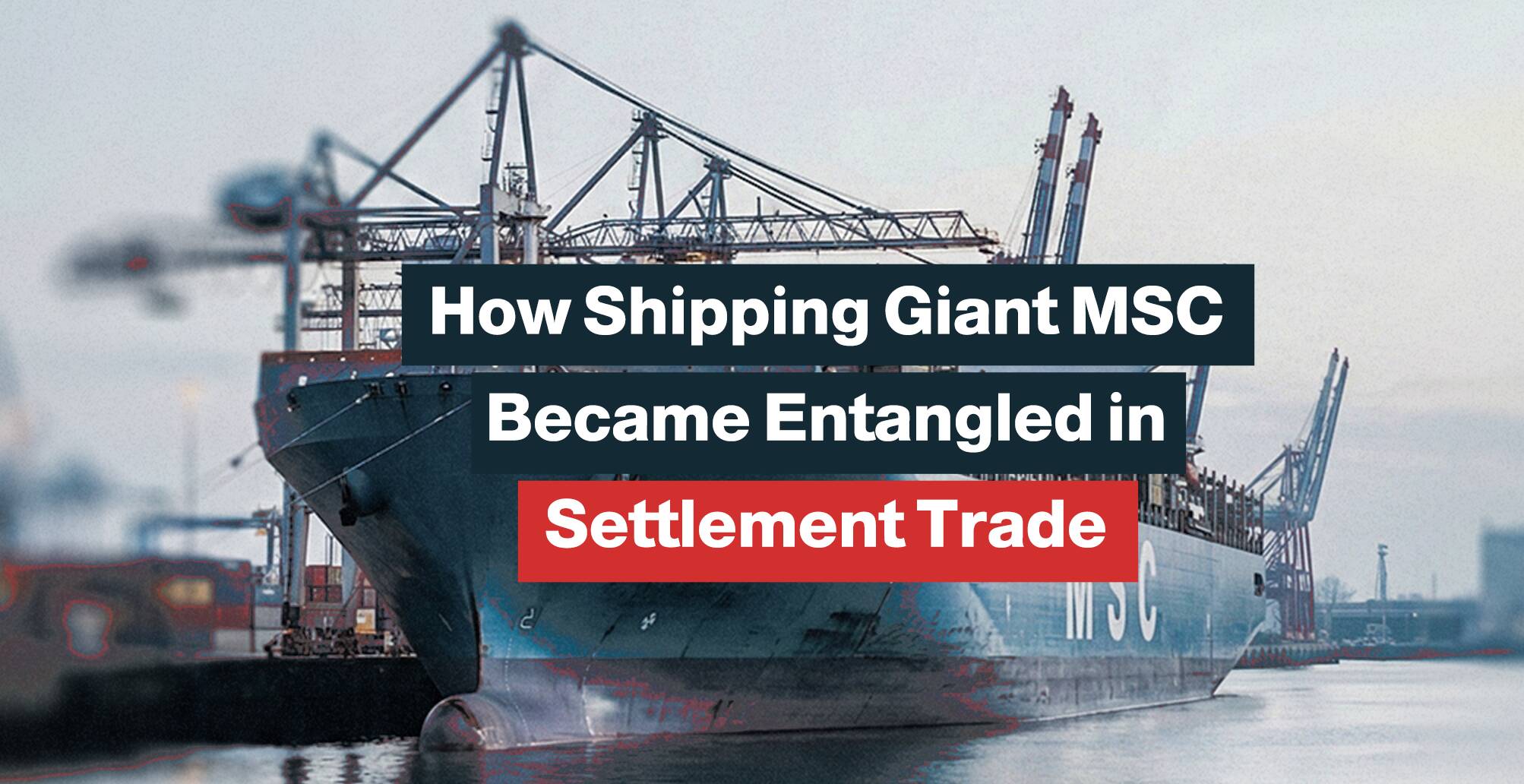Iraq Faces Energy Crisis as Iranian Pressure Forces Strategic Shifts

The U.S. side has revoked Iraq's exemption from sanctions on Iran.
In a significant shift, the U.S. administration has reversed its exemption allowing Iraq to import gas and electricity from Iran, prompting the Iraqi government to seek alternatives to prevent a collapse of the national power grid ahead of the blistering summer, when temperatures in some cities are expected to exceed 50°C.
Since 2017, Iraq has relied on Iranian gas for electricity generation. In March 2024, the country signed a five-year agreement with Iran’s National Gas Company to receive 50 million cubic meters of gas daily, a crucial deal for maintaining energy supplies.

Sanctions Revoked
On March 9, 2025, a spokesperson for the U.S. State Department confirmed that the Trump administration had revoked Iraq's exemption from sanctions related to payments for energy imports from Iran, as part of its ongoing "maximum pressure" campaign against Tehran, Reuters reported.
The unnamed spokesperson told the agency that the decision to allow Iraq’s waiver to expire on March 8 was intended to ensure that Iran would not receive any economic or financial relief.
The campaign, they emphasized, seeks to dismantle Iran’s nuclear threat, curb its ballistic missile program, and prevent its support for terrorist groups.
During his first term (2017-2021), Trump granted exemptions to several buyers to meet energy needs after reimposing sanctions on Iranian energy exports in 2018, citing Tehran's nuclear program and what the U.S. refers to as its intervention in the Middle East.
“[Trump’s] administration and that of Joe Biden repeatedly renewed Iraq's waiver while urging Baghdad to reduce its dependence on Iranian electricity,” The U.S. State Department spokesperson reiterated this call, according to Reuters.
"We urge the Iraqi government to eliminate its dependence on Iranian sources of energy as soon as possible," the spokesperson said. "Iran is an unreliable energy supplier."
"Iraq’s energy transition provides opportunities for U.S. companies, which are world-leading experts in increasing the productivity of power plants, improving electricity grids, and developing electricity interconnections with reliable partners," the State Department spokesperson said.
The spokesperson played down the impact of Iranian electricity imports on Iraq's power grid, saying, “In 2023, electricity imports from Iran were only 4% of electricity consumption in Iraq.”
In early January 2025, Ammar al-Hakim, a prominent leader of the Shia Coordination Framework, revealed that the Biden administration had informed Iraq that the incoming Trump administration would not offer exemptions from sanctions.
"Therefore, you must go and seek alternative gas sources outside of Iran," he stated.
During a television interview, al-Hakim explained that the United States, under Donald Trump's presidency, aimed to use this pressure to force Tehran to engage in dialogue with Western nations and reach an agreement, particularly since Iraq serves as Iran's economic lifeline.

Energy Alternatives
In a race against time to prevent an energy crisis, Saad Jassem, the director general of the Fuel Department at the Ministry of Electricity, revealed on 13 March 2025 that the government had developed contingency plans for what he described as the "worst-case scenarios" Iraq could face if Iranian gas supplies were cut off. Among the alternatives being explored are imports from Qatar, Oman, and Turkmenistan.
"Previously, we only imported from Iran, but now there are government directives and political will to diversify our sources. We must prepare for the worst, and if there is a disruption, we have prepared alternatives," Jassem told AFP.
"In the region, Qatar is the largest producer of natural gas. We have made several visits, and they are ready to assist Iraq with preferential prices."
He also noted that "Oman is another viable option."
He pointed out that negotiations are ongoing to purchase gas from Turkmenistan, to be delivered via pipelines through Iran.
Furthermore, Jassem revealed that Iraq is in the process of constructing two floating LNG terminals in the Khor al-Zubair area in the south of the country, expressing hope that they will be operational by June 2025.
"These facilities can be used to process between 14 to 19 million cubic meters (500 to 700 million cubic feet) of gas per day. If we manage to establish a third unit, we could reach 800 to 900 million cubic feet."
"This would help offset the shortage of Iranian gas that the southern regions of Iraq heavily rely on," Jassem added.
On March 17, 2025, Iraqi Deputy Prime Minister and Foreign Minister Fuad Hussein, met with Turkish Minister of Energy and Natural Resources, Alparslan Bayraktar, to agree on doubling the amount of electricity Turkiye will provide to Iraq, while also exploring the possibility of importing Turkish gas to meet the needs of power generation stations.
In the same vein, Iraqi Electricity Minister Ziad Ali Fadhel met with his Turkish counterpart to discuss strengthening the electricity grid connection between the two countries.
Baghdad confirmed its readiness to increase power supply through the joint line to 600 megawatts, while Ankara pledged to double the supply in the coming months.
On March 18, 2025, the "Energy" platform reported that negotiations between Iraq and Algeria over a liquefied natural gas (LNG) deal are progressing, with an announcement expected within two months at the latest.
Exports will begin once Iraq completes the necessary infrastructure for imports.
According to sources cited by the platform, the contract will be medium-term, with quantities estimated at around one million tons annually, though negotiations have yet to finalize the exact amount.
On October 19, 2024, Iraq's Ministry of Electricity signed an agreement with Turkmenistan to import gas at quantities of up to 20 million cubic meters per day.
The Swiss company, Loxston Energy, will transport the gas through Iran's pipeline network using a swap mechanism to facilitate the transfer.
According to Iraq's Electricity Minister, this agreement will significantly contribute to ensuring fuel supply for gas-fired plants, which currently account for approximately 60% of Iraq's total electricity generation.

Political Leverage
The gas crisis and electricity shortages in Iraq are not just a service issue; they have also become a political leverage that Iran has long exploited, often triggering popular protests that, in turn, led to the removal of Iraqi leaders from power.
Regarding the ability of Prime Minister Mohammed Shia al-Sudani's government to secure alternatives to Iranian gas before the summer, especially with parliamentary elections scheduled for November 2025, Iraqi researcher Bahaa al-Din al-Barzanji stated that "Iran will go to great lengths to obstruct Iraq's contracts with other parties."
"Although Iran is no longer as powerful as it was before the events of October 7, 2023, and its influence in the region has waned, with Trump currently keeping a close eye on its actions, Tehran will nonetheless attempt by all means to prevent Iraq from abandoning its gas supply and seeking alternatives," al-Barzanji told Al-Estiklal.
"Iran has consistently used the electricity and gas supply as a lever to pressure Iraqi governments, either to settle outstanding debts or to express disapproval of Iraqi prime ministers who do not align with its interests or follow its lead," he added.
During the tenure of former Iraqi Prime Minister Haider al-Abadi, specifically in late 2018, Iran cut off electricity and gas supplies to Iraq, sparking protests across central and southern Iraq. Abadi himself saw these protests as a key factor in his failure to secure a second term in office.
Former Iraqi Minister of Electricity, Qassim al-Fahdawi, revealed that "Iranian pressure was exerted on Haider al-Abadi's government to cancel a deal Saudi Arabia had offered Iraq, which included providing gas to Baghdad at prices lower than global rates."
In a television interview on April 12, 2020, al-Fahdawi questioned, "Is it possible for us to sacrifice Iraq's interests to appease Iran?"
"Iran has not cooperated with Iraq in solving the energy crisis, instead cutting off electricity multiple times," al-Fahdawi noted.
What further underscores Iran's role in hindering Iraq's energy projects is the revelation from Bahaa al-Araji, former Iraqi Deputy Prime Minister for Energy Affairs, who disclosed that Tehran had halted crucial electricity projects in the country.
He claimed that "had these projects been completed, they would have improved Iraq's energy situation by 80 percent."
"The Iranian ambassador, Hassan Danaiee-Far, personally approached me during my tenure as Deputy Prime Minister for Energy Affairs and told me to stop these projects, after he had inquired about the new initiative and asked for details," al-Araji explained in a television interview in 2018.











